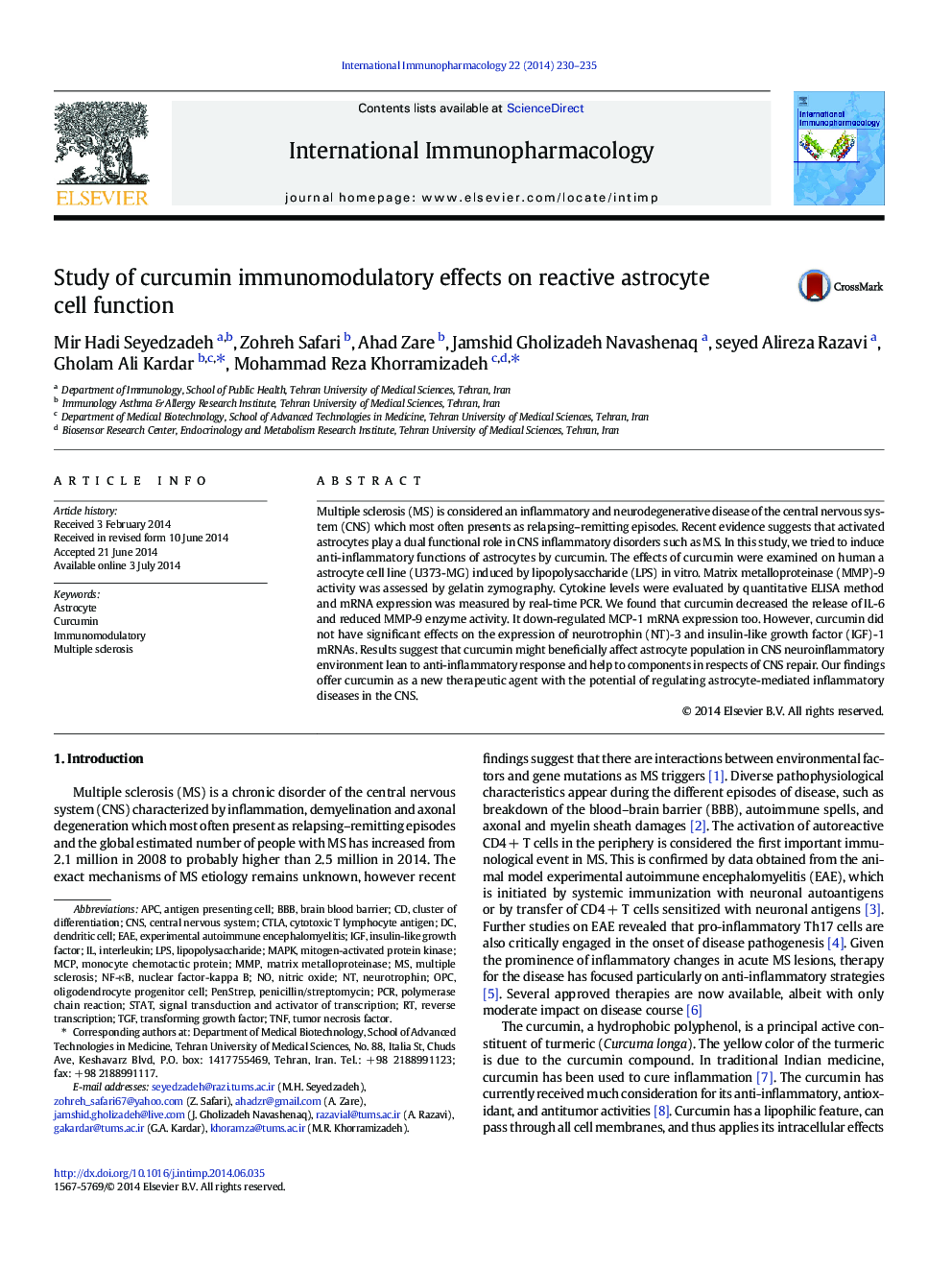| Article ID | Journal | Published Year | Pages | File Type |
|---|---|---|---|---|
| 2540636 | International Immunopharmacology | 2014 | 6 Pages |
Multiple sclerosis (MS) is considered an inflammatory and neurodegenerative disease of the central nervous system (CNS) which most often presents as relapsing–remitting episodes. Recent evidence suggests that activated astrocytes play a dual functional role in CNS inflammatory disorders such as MS. In this study, we tried to induce anti-inflammatory functions of astrocytes by curcumin. The effects of curcumin were examined on human a astrocyte cell line (U373-MG) induced by lipopolysaccharide (LPS) in vitro. Matrix metalloproteinase (MMP)-9 activity was assessed by gelatin zymography. Cytokine levels were evaluated by quantitative ELISA method and mRNA expression was measured by real-time PCR. We found that curcumin decreased the release of IL-6 and reduced MMP-9 enzyme activity. It down-regulated MCP-1 mRNA expression too. However, curcumin did not have significant effects on the expression of neurotrophin (NT)-3 and insulin-like growth factor (IGF)-1 mRNAs. Results suggest that curcumin might beneficially affect astrocyte population in CNS neuroinflammatory environment lean to anti-inflammatory response and help to components in respects of CNS repair. Our findings offer curcumin as a new therapeutic agent with the potential of regulating astrocyte-mediated inflammatory diseases in the CNS.
